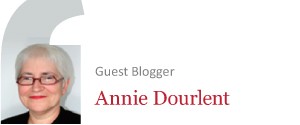Libraries throughout the world have a strong history of responding to natural disasters and humanitarian crises, providing a welcoming environment, a place of refuge for body and soul, and a source of information.
An off-site session will be held at the IFLA WLIC in Columbus (a joint project of the Public Libraries Section and the Library services for Multicultural Population Section) -session 103 – August 15th – Columbus Public Library
During the first part of this session, the Pubic Library Section has chosen to highlight the way libraries in Europe have been able to welcome refugees and provide them both a safe space and many services.
Libraries welcoming refugees
Claudia Lux will present an overview of international examples about services to refugees and newcomers…and our colleagues from Hamburg (Germany), Malmö (Sweden) and Paris (France) will discussed various topics on the way libraries welcome refugees and respond to their needs.
In 2015, many European countries were facing a massive arrival of refugees due to the civil war in Syria. Many libraries were able to open widely their doors to refugees, to create a welcoming, lively and learning atmosphere for refugees and immigrants. The have provided or enhanced services such as language cafés, Internet access and digital workshops, information about asylum seekers’ rights, and various administrative procedures….
To reach refugees, and especially unaccompanied young people, libraries have built partnerships with other municipal public bodies, NGOs, taking part in events outside of the libraries, organizing events in the libraries, proposing workshops in refugees’ homes or shelters.
The staff have been very involved, with working groups on refugees’ projects, intercultural work, on the way to make library spaces and organization understandable. Some libraries now employ dedicated staff, others have integrated and trained volunteers to expand their services to refugees, mainly language cafés. Some volunteers are refugees themselves, sharing their skills, participating actively in workshops and events. Libraries have broadened the intercultural work they already did toward population with migrant background.
Libraries have thus highlighted their role in the city, how they are great contributors to social inclusion and cohesion. in some cases, their involvement has attracted a lot of attention among citizens, public bodies or even companies.
Read more about the actions and services of libraries in Hamburg , Malmö and Paris for refugees.
During the second part of the session, Mary Grace Falherty will give an overview of Libraries response in times of disaster, and there will be presentations and workshops with colleagues from Oslo (Norway), United States and Toronto (Canada).
Looking forward to seeing you in Columbus!

